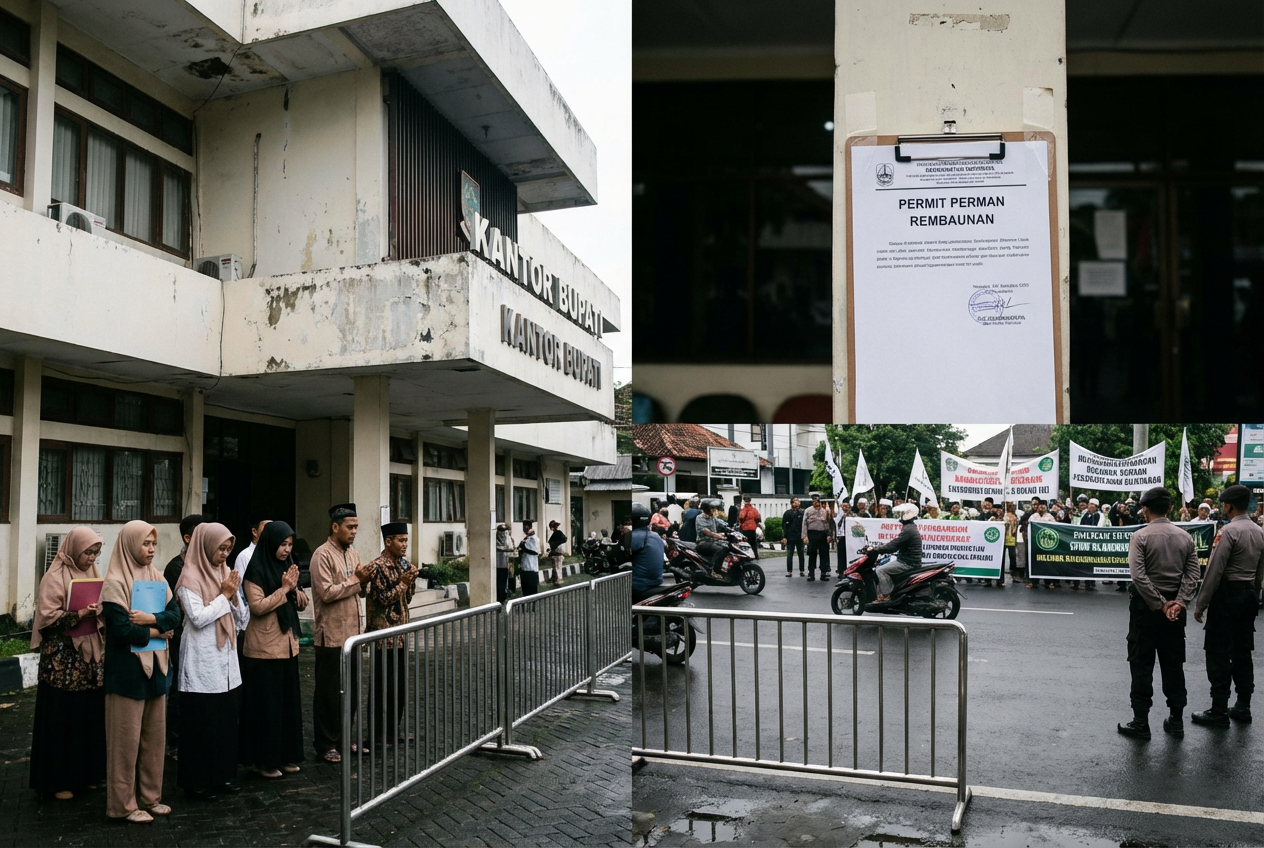Faith
Teacher’s Settlement Sparks Debate on Religious Freedom

In a significant affirmation of religious freedom and traditional values, a Wisconsin teacher has successfully settled with the Argyle School District after facing termination for adhering to his Christian beliefs. Jordan Cernek, who was dismissed in May 2023, refused to comply with a district mandate requiring staff to use preferred names and pronouns for trans-identified students, citing his religious convictions.
The Wisconsin Institute for Law and Liberty (WILL) announced that the district agreed to a $20,000 settlement, concluding the legal battle that began with a lawsuit filed in July 2024. This lawsuit argued that Cernek’s termination violated both Title VII of the Civil Rights Act of 1964 and the First Amendment, as well as the Wisconsin Constitution’s protections of religious freedom.
“To avoid acting contrary to his religious convictions, Mr. Cernek made the District aware of his religious objection to this requirement and agreed not to use any names when referring to students,” the WILL announcement stated. Despite this compromise, the district warned Cernek that failure to comply would lead to disciplinary action, culminating in the non-renewal of his teaching contract.
Cernek expressed gratitude for the resolution and remains committed to encouraging fellow educators to uphold their beliefs. “I am grateful that there was some resolution to this matter and will continue to encourage teachers to stand up for their beliefs,” he stated.
Nathalie Burmeister, Associate Counsel for WILL, underscored the broader implications of this victory for religious freedom, calling it a “core liberty that our nation and state were founded upon.” She added, “Jordan’s victory is critical to advancing the cause of religious freedom across the country.”
This case is part of a larger trend where educators face professional consequences for adhering to their religious beliefs. Notably, Kansas math teacher Pamela Ricard and Virginia French teacher Peter Vlaming both faced similar challenges and reached substantial settlements with their respective districts. These cases highlight the ongoing struggle to balance religious convictions with progressive policies in educational settings.
In response to such incidents, several states have enacted laws to protect teachers who choose not to use preferred names and pronouns due to religious objections. Wyoming and Idaho have taken legislative steps to safeguard the rights of educators and state employees, reinforcing the importance of religious freedom and individual conscience.
As we navigate these challenging times, the importance of standing firm in our faith and values cannot be overstated. The resolution of Cernek’s case serves as a beacon of hope for those who believe in the enduring principles of faith, family, and freedom that have long been the bedrock of our great nation.
Let us know what you think, please share your thoughts in the comments below.
Faith
World Watch List: Truths Christian Patriots Should Know

Faith Facts
- The World Watch List ranks the 50 most dangerous countries for Christians each year.
- Definitions of persecution are complex, with broad and legal meanings.
- The Watch List identifies multiple ‘persecution engines,’ not just religious bias.
The World Watch List, published by Open Doors, reveals where Christian believers face the harshest threats to their faith. This tool is heavily referenced in discussions on global religious freedom, spotlighting the severe trials Christians experience worldwide.
Some criticize the World Watch List’s definitions, yet most experts agree that persecution includes various forms of mistreatment, discrimination, or violence for one’s faith. The term is used both generally and legally, reflecting the serious challenges many Christians encounter.
As believers, we understand that standing firm for Christ has always invited persecution. The Watch List identifies sources such as religious nationalism, clan oppression, and organized corruption — highlighting that opposition comes from many directions, not just a single worldview.
Including ‘Islamic oppression’ in the list does not label all Muslims as oppressors, just as ‘Christian denominational protectionism’ does not reflect every Christian group. The Bible calls us to truth while praying for those who face hostility for righteousness’ sake.
It is important to recognize that the difficulties Christians experience are real and well-documented, even though Christianity is the largest global faith. Our response should be marked by prayer, advocacy, and a commitment to uphold religious liberty for all, guided by God’s Word.
Let us stand together for brothers and sisters in Christ facing persecution, drawing strength from our faith and the freedoms we cherish. Stay vigilant, informed, and bold in defending Christian values around the world.
Faith
Christian Group Appeals Indonesian Permit Revocation

Faith Facts
- The Surakarta Blessed Family Foundation (YKAS), a Christian affiliate of Bethel Indonesia Church, has appealed the revocation of its building permits in Central Java.
- YKAS claims the permit removals were done without proper dialogue or legal basis despite complying with all documentation requirements.
- Mass opposition and protests arose as construction neared completion, with local Islamic groups voicing strong objections.
Upholding the right to worship in Indonesia remains a challenge for Christian communities as they navigate ongoing opposition and bureaucratic obstacles. The faithful are called to stand firm in truth while seeking justice through peaceful and prayerful means.
Dendy Zuhairil Finsa, chairman of the Ansor Youth Movement Legal Aids Institute, said,
“The revocation of the five BCAs, which were issued, then corrected, postponed and finally revoked within just three days, constitutes an arbitrary act because there was no room for dialogue with the Surakarta Blessed Family Foundation, the administrator.”
Pressure from various groups has led to governmental indecision and temporary halts in the Christian project, putting religious liberty at risk. Community voices remind us of the importance of fairness and the need for faith-based initiatives to have equal protection under the law.
Setiawan Budi, coordinator of the Interfaith Brotherhood, called the government’s handling,
“A form of alleged arbitrariness… Something like this should never have happened.”
Now more than ever, believers must unite in prayer, advocate for religious freedom, and support our Christian brothers and sisters worldwide. Stand for faith, family, and freedom as we defend the right to worship and uphold Biblical values in every nation.
Faith
Putin Criticized for ‘Heresy’ Over War Comments

Faith Facts
- Rowan Williams, former Archbishop of Canterbury, called Putin’s statements about Russia’s war ‘heresy.’
- Putin described the invasion of Ukraine as a ‘holy mission’ during Orthodox Christmas.
- The message has faced criticism for blending faith with national ideology and violence.
Rowan Williams strongly denounced comments by Russian President Vladimir Putin equating military action to a divine mission, warning such views undermine Christian teaching. Putin’s message linking military service to spiritual salvation during Orthodox Christmas has stirred international concern.
Williams cited John 18:36 to emphasize that Christ’s kingdom is not of this world, rejecting the use of violence in God’s name.
“There is something really, really disturbing about the systematic, comprehensive rebranding of Christianity as Russian national ideology,” Williams said.
Christian faith emphasizes peace and self-sacrifice, not using God to justify war. The ongoing conflict between Russia and Ukraine continues to raise questions about the proper relationship between faith, patriotism, and power.
-

 Self-Reliance10 months ago
Self-Reliance10 months agoTrump’s Bold Move Uncovers Massive Social Security Fraud
-

 News11 months ago
News11 months agoGovernor Walz’s Rhetoric Sparks National Controversy
-

 Faith10 months ago
Faith10 months agoNew Clues Emerge in Noah’s Ark Mystery
-

 Family10 months ago
Family10 months agoTexas Lawmaker Targets Furries in Schools
-

 News10 months ago
News10 months agoMel Gibson’s ‘The Passion of the Christ’ Sequel Title Announced
-

 Freedom10 months ago
Freedom10 months agoMaine Lawmaker Challenges Sports Fairness Controversy
-

 Family8 months ago
Family8 months agoCanada’s Controversial Policy Sparks Ethical Debate
-
Faith2 months ago
Congress Hears Pleas for Nigerian Christians




